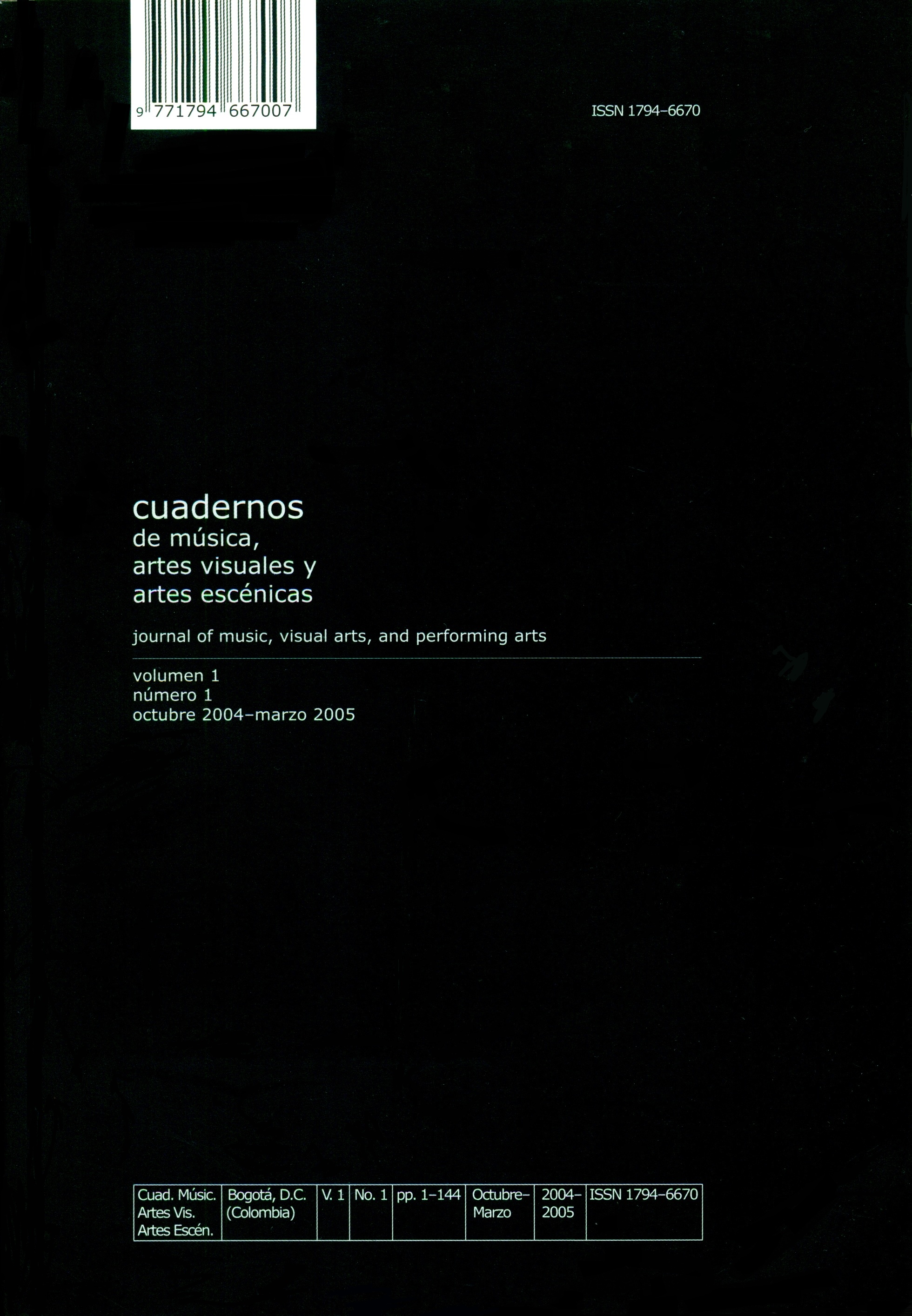Resumen
El afán por la traducibilidad y la delimitación de las características musicales, que estuvo presente en los primeros años de la etnomusicología como ciencia, contribuyó a la marcación estereotípica de otras músicas diferentes a la occidental, produciendo al menos dos efectos. En primer lugar, invisibilizó en el horizonte representacional a la música urbana artística europea, que aún hoy goza de lo que Steven Feld llama “una sinonimia tácita” con el término música.1 En segundo lugar, puso en marcha procesos complejos de subjetivación ligados a los efectos de identidad que circulan a través de músicas no urbanas, no artísticas y no europeas. La centralidad del concepto de identificación en el consumo de las músicas aquí llamadas étnicas, se hace importante para entender cómo, en el mercado discográfico globalizado, se ha abierto paso a una nueva categoría estética que aprovecha la marginalidad de estas músicas –y los movimientos de deseo/rechazo simultáneos que generan– para promover ventas y dinamizar el mercado. Este proceso está atravesado por discursos globales en boga, como el multiculturalismo o la biodiversidad, que configuran una estrategia etnopolítica de pacificación de la diferencia. Sin embargo, al operar a través de estereotipos, es decir, a través de representaciones simplificadas y fijas, la marcación de la otredad deja una brecha por la que las músicas étnicas siempre podrán emerger para desestabilizar el régimen de representación que las nombra y clasifica.Esta revista científica se encuentra registrada bajo la licencia Creative Commons Reconocimiento 4.0 Internacional. Por lo tanto, esta obra se puede reproducir, distribuir y comunicar públicamente en formato digital, siempre que se reconozca el nombre de los autores y a la Pontificia Universidad Javeriana. Se permite citar, adaptar, transformar, autoarchivar, republicar y crear a partir del material, para cualquier finalidad, siempre que se reconozca adecuadamente la autoría, se proporcione un enlace a la obra original y se indique si se han realizado cambios. La Pontificia Universidad Javeriana no retiene los derechos sobre las obras publicadas y los contenidos son responsabilidad exclusiva de los autores, quienes conservan sus derechos morales, intelectuales, de privacidad y publicidad.
El aval sobre la intervención de la obra (revisión, corrección de estilo, traducción, diagramación) y su posterior divulgación se otorga mediante una licencia de uso y no a través de una cesión de derechos, lo que representa que la revista y la Pontificia Universidad Javeriana se eximen de cualquier responsabilidad que se pueda derivar de una mala práctica ética por parte de los autores. Como consecuencia de la protección brindada por la licencia de uso, la revista puede publicar retractaciones o corregir la información ya publicada. La publicación de contenidos en esta revista no representa regalías para los contribuyentes.


